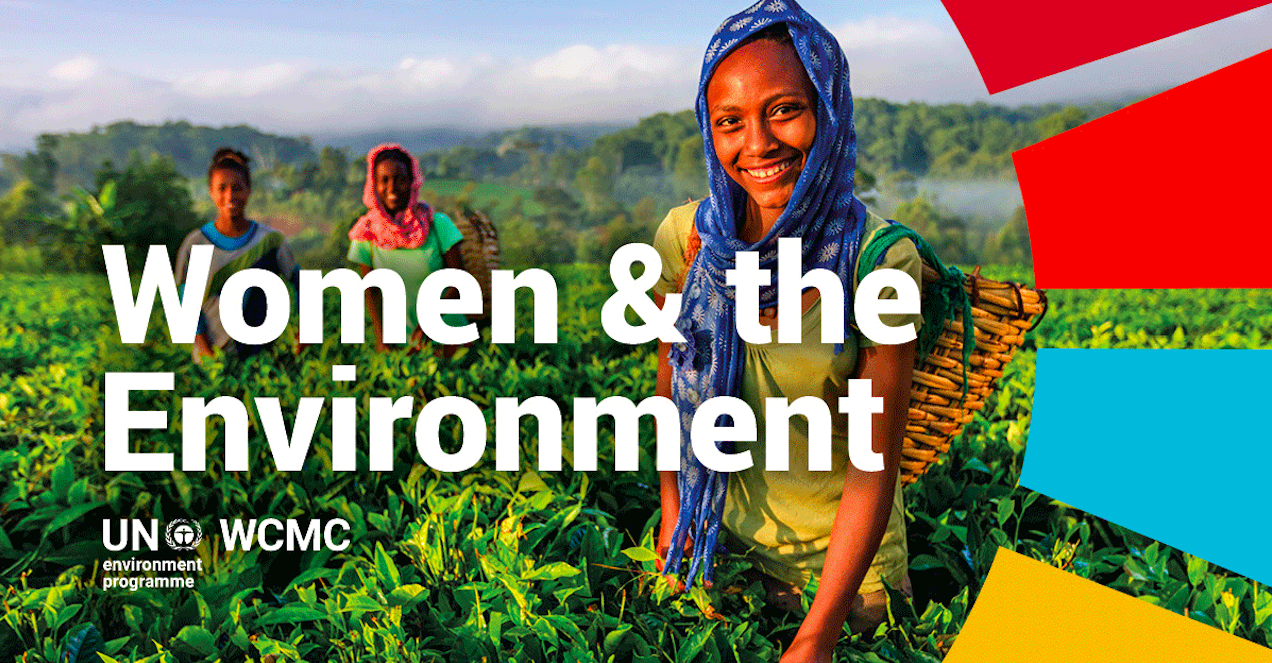News
Women and the environment: 25 years on

News | Sep 2020
In 1995, at the Fourth World Conference on Women, representatives from 189 countries agreed on a groundbreaking plan for gender equality: the Beijing Declaration and Platform of Action.
The progressive document defined 12 critical areas for the empowerment of women and the achievement of gender equality. 25 years later, the Beijing Declaration and Platform of Action continues to inspire and guide decision-makers towards the advancement of women's rights.
One of the 12 areas of concern was "Women and the Environment", and this remains critical.
Women and the environment
Women have unique knowledge and responsibilities in the sustainable use and conservation of biodiversity, and they are agents of transformational change.
At the same time, women rely on healthy ecosystems to feed their families, and as such, they are heavily affected by environmental degradation and disasters like flooding, biodiversity loss and climate change. Women in rural and indigenous communities shoulder specific responsibilities to ensure the wellbeing of their families such as gathering water and firewood. In many areas, non-timber forest products are the only sources of cash available to women.
However, women’s representation in environmental decision-making processes remains insufficient and their access to and management of land and marine resources can be severely limited.
The Beijing Declaration and Platform of Action outlines the need to ensure that women are involved in environmental decision-making at all levels. Their participation is intermediated by international bodies and women's rights organisations seeking to make sure that their concerns are integrated into policies and programmes, and that the impact of development and environmental policies on women are assessed. But there is more to be done; very limited effort has been placed towards collecting sex-disaggregated data to monitor progress towards actions outlined in the Platform of Action.
Gender and the Global Biodiversity Framework
The need to ensure women's participation in environmental decision-making is being increasingly recognized.
At the fourteenth meeting of the Conference of the Parties to the CBD in December 2018, Parties agreed that the process to develop the post-2020 global biodiversity framework should be gender-responsive (Decision 14/34, Decision 14/18) to help reach both gender equality and global biodiversity objectives.
To help achieve this, UNEP-WCMC and UN Women have been collaborating to progress three key priority action areas for advancing gender equality and women’s empowerment in the implementation of the post-2020 global biodiversity framework:
- Equal opportunities for leadership, decision-making and effective engagement at all levels
- Equal access, ownership and control over biological resources; and
- Equal access to benefits from biodiversity conservation and sustainable use, and from the utilization of genetic resources.
UNEP-WCMC and UN Women
The collaboration between UNEP-WCMC and UN Women uses data and evidence as tools for a gender-responsive post-2020 global biodiversity framework. For example, with the goal of addressing gender-environment data gaps, there are several gender-responsive indicators1 that could potentially be included in the post-2020 framework for monitoring progress towards the key priority areas.
The collaboration also focuses on identifying opportunities to align with the 2030 Agenda for Sustainable Development as gender equality is one of the Sustainable Development Goals (SDGs). Gender is also a cross-cutting issue in several other SDGs including climate action and clean water and sanitation. For example, SDG indicators related to land tenure (SDG 1.4.2, and 5.a.2), the share of women among owners or right-bearers of agricultural land (SDG 5.a.1), the average income of small-scale food producers (SDG 2.3.2), and access rights for small-scale fisheries (SDG 14.b.1) are also relevant for the post-2020 global biodiversity framework.
The United Nations and Women's Rights organisations all around the world celebrate the 25th anniversary of the Beijing Declaration and Platform of Action. It is a call to action for all of us – to ensure that women are included and empowered to make decisions that impact them and their communities in their relationship with the environment.
Have a query?
Contact us
communications@unep-wcmc.org
